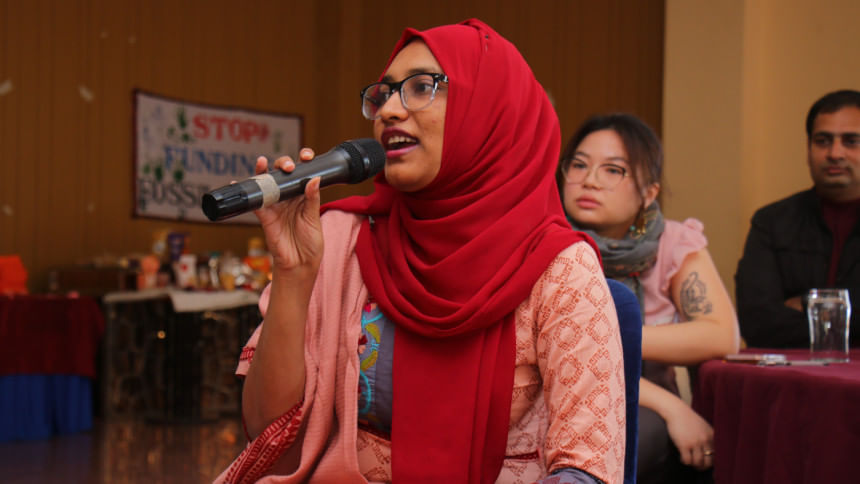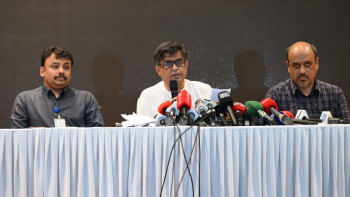MIST alumna appointed to UN Youth Advisory Group on Climate Change

Farzana Faruk Jhumu, a climate justice advocate and Military Institute of Science and Technology (MIST) alumna, has been appointed to the United Nations' third Youth Advisory Group on Climate Change. The 14-member group, formed under UN Secretary-General António Guterres' Youth 2030 strategy, began its work on 12 August 2025, with a mandate to bring young people's perspectives directly into global climate decision-making. "It feels both humbling and empowering to carry the voices of my country's youth to the highest level of climate governance," Jhumu said after the announcement.
From 2022 to 2024, Jhumu was a UNICEF Youth Advocate for Bangladesh, where she worked with policymakers, children's networks, and development partners to highlight climate change as a child rights crisis. She also addressed the launch of the Children's Climate Risk Index, highlighting the alarming reality that one in three children in Bangladesh is already living with severe climate impacts. This was followed by her participation at COP27 in Egypt, where she called on world leaders to move beyond promises and take urgent, concrete action.
Jhumu is also the co-founder of KaathPencil, an initiative that reaches children affected by river erosion, floods, and displacement. Through workshops, school campaigns, and art-based learning, her team has worked in climate-vulnerable districts, including Sunamganj, Satkhira, and Barguna. On the other hand, she has been a key organiser in Fridays for Future Bangladesh, particularly within the MAPA (Most Affected People and Areas) network, where she amplified voices from cyclone-hit coastal regions. Moreover, she is a champion for the Fossil Fuel Non-Proliferation Treaty, advocating for a structured global process to help countries commit to phasing out fossil fuels.
From there, her advocacy extends to global platforms. She has represented Bangladesh at youth climate forums in Stockholm, New York, and Dubai, where she has spoken on renewable energy transitions and climate finance. Furthermore, at COP29 in November 2024, she sat with Nobel laureate and Bangladesh government's Chief Advisor Dr Muhammad Yunus to discuss fossil fuel phase-out, a better financial system for children and young people, gender-responsive finance mechanisms, and youth engagement for a better world; Dr Yunus, in turn, shared his vision on how youth can work together for transformative change.
Jhumu's collaborations span UN Women's Feminist Action Coalition for Climate Justice, 350.org, Greenpeace, and regional youth networks. Ultimately, her appointment to the UN advisory group recognises her personal commitment and opens the door for Bangladesh's climate-affected communities to directly influence international policy.

 For all latest news, follow The Daily Star's Google News channel.
For all latest news, follow The Daily Star's Google News channel. 








Comments